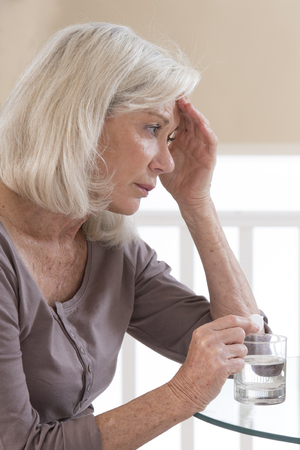As we age we often experience normal changes in our sleeping patterns, such as becoming sleepy earlier, waking up earlier, or enjoying less deep sleep. However, disturbed sleep, waking up tired every day, and other symptoms of insomnia are not a normal part of aging. Sleep is just as important to our physical and emotional health as it was when we were younger.
These tips can help you overcome age-related sleep problems and get a good night’s rest.
Why Is Sleep So Important For Older Adults?
A good night’s sleep is especially important to older adults because it helps improve concentration and memory formation, allows your body to repair any cell damage that occurred during the day, and refreshes your immune system, which in turn helps to prevent disease.
- Older adults who don’t sleep well are more likely to suffer from depression, attention and memory problems, and excessive daytime sleepiness.
- Insufficient sleep can also lead to serious health problems, including an increased risk of cardiovascular disease, diabetes, weight problems, and breast cancer in women.
- Insomnia & Aging Tip 1: Understand How Sleep Changes As You Age
As you age your body produces lower levels of growth hormone, so you’ll likely experience a decrease in slow wave or deep sleep. When this happens you produce less melatonin, meaning you’ll often experience more fragmented sleep and wake up more often during the night. You may also:
- Want to go to sleep earlier in the evening and wake up earlier in the morning.
- Have to spend longer in bed at night to get the hours of sleep you need, or make up the shortfall by taking a nap during the day.
In most cases, such sleep changes are normal and don’t indicate a sleep problem.
At any age, it’s common to experience occasional sleep problems. However, if you experience any of the following symptoms on a regular basis, you may be dealing with a sleep disorder:
- Have trouble falling asleep even though you feel tired
- Have trouble getting back to sleep when awakened
- Don’t feel refreshed after a night’s sleep
- Feel irritable or sleepy during the day
- Have difficulty staying awake when sitting still, watching television, or driving
- Have difficulty concentrating during the day
- Rely on sleeping pills or alcohol to fall asleep
- Have trouble controlling your emotions
- Are you under a lot of stress?
- Are you depressed? Do you feel emotionally flat or hopeless?
- Do you struggle with chronic anxiety or worry?
- Have you recently gone through a traumatic experience?
- Are you taking any medications that might be affecting your sleep?
- Do you have any health problems that may be interfering with sleep?
Tip 3: Improve Sleep Habits
In many cases, you can improve your sleep by addressing emotional issues, improving your sleep environment, and choosing healthier daytime habits. Since everyone is different, though, it may take some experimentation to find the specific changes that work best to improve your sleep.
Naturally boost your melatonin levels. Artificial lights at night can suppress your body’s production of melatonin, the hormone that makes you sleepy. Use low-wattage bulbs where safe to do so, and turn off the TV and computer at least one hour before bed.
Don’t read from a backlit device at night (such as an iPad). If you use a portable electronic device to read, use an eReader that is not backlit, i.e. one that requires an additional light source.
Make sure your bedroom is quiet, dark, and cool, and your bed is comfortable. Noise, light, and heat can cause sleep problems. Try using a sleep mask to help block out light.
Use your bedroom only for sleep and sex. By not working, watching TV, or using your computer in bed, your brain will associate the bedroom with just sleep and sex.
Move bedroom clocks out of view. The light can disrupt your sleep and anxiously watching the minutes tick by is a surefire recipe for insomnia.
Tip 4: Use Diet And Exercise To Improve Sleep
Two of the daytime habits that most affect sleep are diet and exercise. As well as eating a healthy diet during the day, it’s particularly important to watch what you put in your body in the hours before bedtime.
There are countless activities you can do to prepare yourself for a good night’s sleep at the end of the day. But always consult your doctor before embarking on any new fitness program.
Swim/Water exercises – Swimming laps is a gentle way to build up fitness and is great for sore joints or weak muscles. Many community and YMCA pools have swim programs just for older adults, as well as water-based exercise classes.
Dance – If you love to move to music, go dancing or take a dance class. Dance classes are also a great way to extend your social network.
Take up lawn bowling, bocce, or pétanque – These ball games are gentle ways to exercise. The more you walk, and the brisker the pace, the more aerobic benefit you’ll experience.
Golf – Golf is another exercise that doesn’t require vigorous movement. Walking adds an aerobic bonus and spending time on the course with friends can improve your mood.
Cycle or run – If you are in good shape, you can run and cycle until late in life. Both can be done outdoors or on a stationary bike or treadmill.

